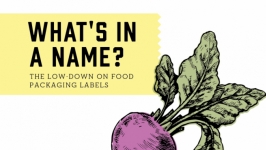Should We Call Plant-Based Products "Meat"?
Tofu, tempeh and seitan have been part of Asian diets for thousands of years. In the United States, however, swapping plant protein for animal protein is still relatively new. According to the United States Department of Agriculture, Americans have been steadily eating less red meat for health or environmental reasons during the last 40 years. Simultaneously there has been an increase of plant-based meat alternatives available in grocery stores and restaurants alike.
The proliferation of meat substitutes is raising questions – maybe not for consumers – but definitely in politics. Debates continue about whether or not alternative protein makers should be allowed to use words like meat, sausage, bacon and other terms used to describe their animal-based counterparts.
The U.S. Cattlemen's Association, for instance, is drawing a line in the sand, filing a petition with the USDA calling for an official definition for the term "beef," and more broadly, "meat." Last year, France moved to ban the sale of products using words like "steak, bacon, or sausage" to describe products that are not partly or wholly composed of meat, while in the U.S., Missouri state legislators approved a measure to regulate the term “meat” on product labels.
It begs the question: do we need a new vocabulary for defining current and future food products on the market? Perhaps it is time we find new names for plant-based products, ones that put vegetables at the center of discussion, rather than simply rehash meat-based terminology.














